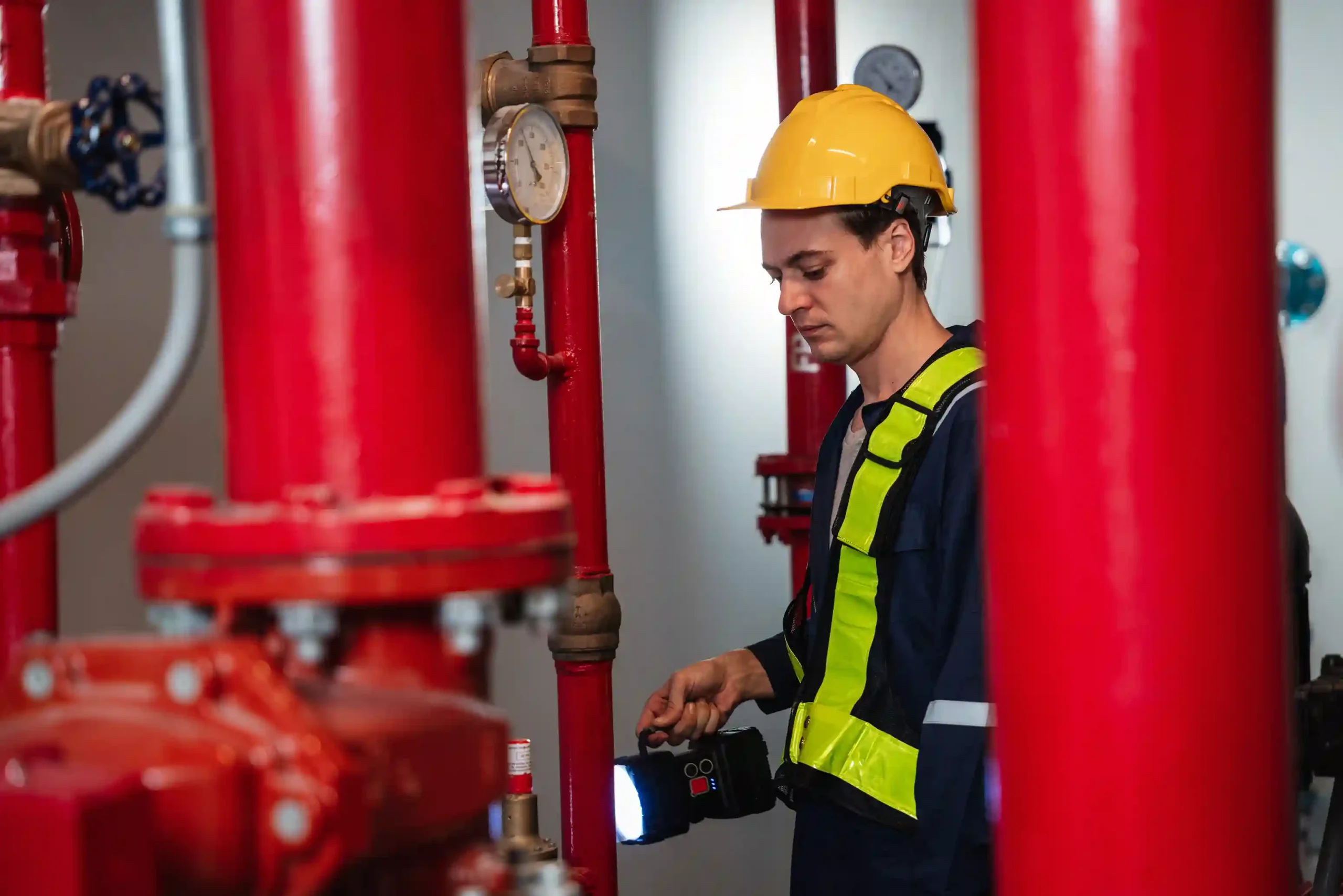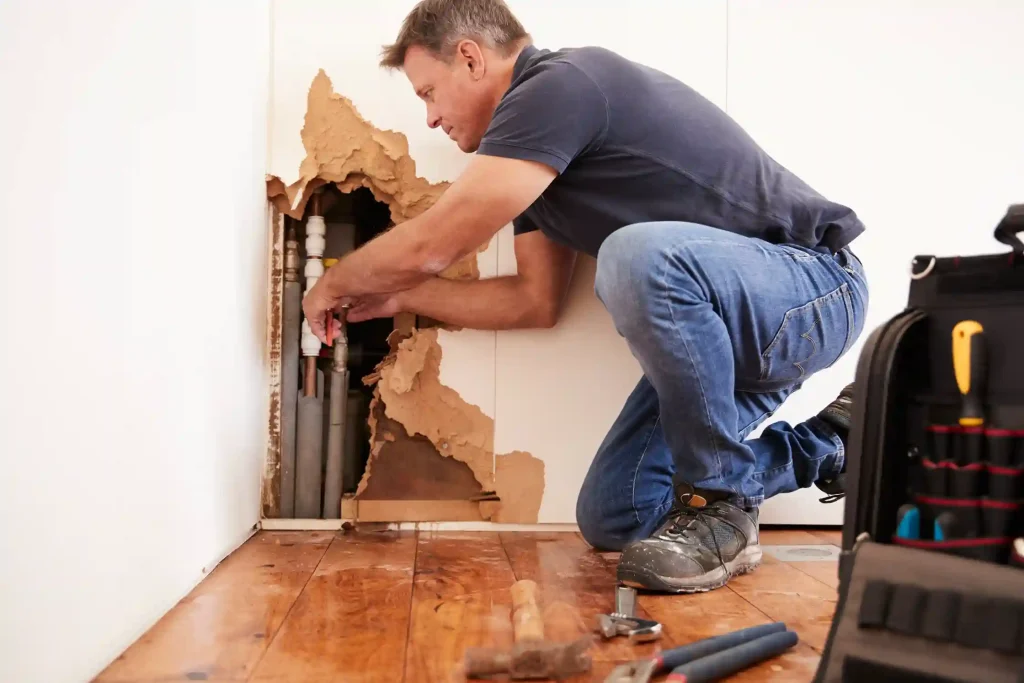
Gas leaks are quiet risks that may become hazardous in an instant. You may assume, “It’s just a small leak, right?” However, even little leaks can result in catastrophic consequences, such as explosions, health dangers, or property damage. What is the good news? Understanding how to detect a gas leak is pretty simple and might save lives. This article will guide you on how to recognize the indications, check for leaks yourself, and know when to call in the professionals.
Should I Worry About a Small Gas Leak?
Absolutely! A little leak might soon expand. Plus, gas is extremely combustible. A single spark near a leak might result in a calamity. Furthermore, inhaling natural gas is hazardous. It can cause dizziness, headaches, and even poisoning. If you’re confused about how to detect a gas leak, don’t dismiss those subtle symptoms. Play it safe and respond quickly.
Recognizing the Signs that You Have a Gas Leak
Gas leaks can be quiet before they become loud. Catching them early makes a huge impact.
The Distinctive Smell of Gas (Mercaptan)
Natural gas is odorless. However, utility corporations add mercaptan, which causes it to smell like rotten eggs. If you ever smell that harsh, unpleasant stench in your house, don’t ignore it. It’s one of the simplest ways to tell if you have a gas leak.
Visual Clues: Bubbles, Dead Vegetation, and Dirt Clouds
Sometimes, the visual indicators of gas leaks are there in front of you. Do you see bubbles when you pour water over gas connections? That is a red flag. Dead or withering plants near gas pipes are another indicator. Also, if you notice dust or dirt flying around without any apparent explanation, you may be standing near a leak.
Audible Signs: Hissing or Whistling Sounds
Gas leaks might also generate sounds. A subtle hissing or whistling sound near gas lines or appliances may indicate danger. Don’t be deaf!
Physical Symptoms: Headaches, Nausea, and Dizziness
Your own body may also detect gas leaks. Frequent headaches, nausea, dizziness, or trouble breathing inside might indicate a gas leak. Do not overlook these warning indicators.
How to Detect a Gas Leak at Home (DIY Methods)
While specialists are usually the safest bet, there are certain fast tests you may perform at home.
The Soap and Water Test
Here is a fast trick: Combine dish soap and water in a spray bottle. Spray it on any suspicious connections. If you notice bubbles developing, you have discovered the leak! This is one of the most popular and reliable techniques how to check for gas leaks on your own.
Use a Gas Leak Detector
Do you dislike doing your own testing? Invest in a portable gas leak detector. They’re simple to use and can detect leakage that your nose might miss. Move it around hookups, stoves, and gas lines. When the gadget detects gas, it will beep or illuminate.
Check Appliance Connections and Gas Lines
Take time to examine appliance connections and visible gas lines. Check for loose fittings, corrosion, or wear and tear. A brief inspection today might help you avoid greater issues later.
Preventing Gas Leaks with Safety Measures
It is always better to prevent than to cure. Let’s speak about how to prevent gas leaks.

Regular Inspections and Maintenance Tips
Schedule yearly checks for all gas appliances. An expert can identify concerns that you may overlook. Also, remember to monitor your carbon monoxide detectors on a regular basis.
Safe Appliance Usage and Installation Practices
Never cut corners on installation. Always hire licensed specialists. And remember, if an appliance smells like gas or makes strange noises, turn it off immediately.
Educating Your Household on Gas Safety
Make sure everyone in your household knows how to detect a gas leak. Teach children the smell of gas. Practice what to do if they detect a leak: evacuate the house and contact for assistance. Safety begins with awareness.
Call a Professional If You Suspect a Gas Leak
You’ve completed your checks. You’ve seen, heard, and smelled. But do you still have doubts? Do not wait. Whether you’re not sure how to tell if you have a gas leak, follow your instincts and contact an expert. Never attempt to remedy a gas leak on your own. Turn off the gas (if safe), leave the house, and contact your local gas company or a professional plumber.
Wrap-Up: Stay Safe, Stay Smart
Now that you know how to detect a gas leak don’t hesitate to take action at the first warning. Trust your nose, eyes, and hearing. Keep your equipment in excellent condition. Most importantly, train everyone at home to be vigilant.
If you suspect a gas leak or want assistance with gas line inspections, we’ve got you covered. At Wally Blanton Plumbing Inc., we are always available to assist you in keeping your home secure. Our qualified specialists understand gas leak detection inside and out. Don’t take chances — contact or visit us immediately!
